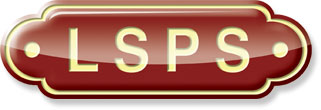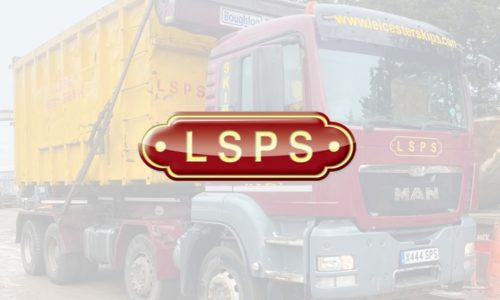When considering skip hire and waste disposal in the UK, it’s essential to recognise that not all waste is suitable for being thrown into a skip. Specific regulations dictate the kind of materials that can be safely and legally discarded this way. These rules are vital for ensuring environmental protection, promoting recycling, and minimising landfill usage. It’s crucial to be aware of these restrictions to prevent potential fines and to facilitate the sustainable treatment of waste.
Certain items are categorically prohibited from being placed in skips due to their hazardous or toxic nature. For instance, materials such as asbestos, medical waste, fluorescent tubes, solvents, and oil must be disposed of using specialised methods to safeguard both human health and the environment. Moreover, items like upholstered furniture, gas cylinders, and batteries need particular attention during disposal. Failure to comply with these regulations can result in harmful repercussions for the ecosystem and could lead to penalties from waste management authorities.
Key Takeaways
- Not all materials can be discarded in skips owing to environmental and safety regulations.
- Specialised disposal is required for hazardous materials, ensuring environmental protection.
- Compliance with waste disposal rules helps promote sustainable waste management practices.
Prohibited Items in Skips
When hiring a skip, it is paramount to be aware of the various items that are not permitted. The disposal of certain materials is strictly regulated due to their potential impact on the environment and human health.
Hazardous Materials and Chemicals
Hazardous waste such as asbestos, chemicals, solvents, and oil must not be placed in skips. These materials pose significant risks to both the environment and human health. For instance, asbestos can cause severe respiratory problems if its fibres are inhaled. Similarly, fluorescent bulbs contain mercury, while some paints and fuels include harmful chemicals that can contaminate soil and groundwater.
Electrical Items and Appliances
It’s illegal to dispose of electrical equipment and appliances like televisions, gas cookers, and electrical appliances in a skip. They need to be responsibly recycled to prevent toxic substances from leaking into the environment. Specialised recycling centres are equipped to handle such waste.
Construction and Heavy Materials
Items that fall under the construction and heavy materials category, such as soil, plaster, rubble, and concrete, are often not allowed in standard skips due to weight restrictions and potential to damage the skip. Plasterboard is another material often prohibited as it requires separate disposal to prevent harmful gases from being released at landfill sites.
Other Non-Allowed Items
Skips cannot accommodate every type of waste. Restricted items typically include medical waste, tyres, mattresses, and food and animal waste. The disposal of these requires specialised waste management services to avoid any adverse effect on the environment and adhere to waste regulations. Recycling is favoured over landfill to minimise environmental damage.
Suitable Waste Types for Skips
When hiring a skip, it’s essential to know what waste types are suitable for disposal within it. Most household and garden waste, construction debris, and non-hazardous materials can typically be placed in a skip, ensuring an efficient and environmentally responsible way to manage waste.
Household and Garden Waste
Household waste can include a wide variety of items, such as cardboard, paper, and even clothes. Furniture pieces like sofas and armchairs without upholstery are often permitted. Garden waste might encompass grass, leaves, branches, and soil. It is crucial, however, to check if any natural waste requires special disposal methods due to local regulations.
- Items typically allowed:
- Cardboard
- Paper
- Furniture (non-upholstered)
- Clothes
Building and Renovation Debris
For construction or renovation projects, skips are ideal for disposing of building materials such as bricks, concrete, stones, tiles, ceramics, and wood. Often referred to as inert waste, this type of material is non-biodegradable and does not decompose, thus suitable for skips designated for heavy waste.
- Common building waste:
- Bricks
- Concrete
- Wood
- Tiles and ceramics
Skip-Specific Waste Types
Many materials from home remodels and clean-outs qualify as general waste, which can go into skips. This includes metals, plastic, glass, and rubber items. Non-electrical fixtures and fittings, polystyrene, and even artificial grass are among the various other waste types accepted. However, skip size can impose limits on acceptable waste amounts, with larger skips accommodating more or heavier items.
- Acceptable materials:
- Metals (non-hazardous)
- Plastic
- Glass
- Rubber
Always verify with the skip hire company for a detailed list of permitted items, as rules may vary, and make informed decisions to support efficient waste recycling and disposal.
Skip Hire Practicalities
In the realm of waste management, understanding the practicalities of skip hire is crucial, right from selecting an appropriate size to adhering to policies and considering environmental impacts.
Choosing the Right Skip Size
The first step in efficient waste management through skip hire is selecting a size that aligns with project needs. Sizes range from mini skips suitable for minor domestic clear-outs to large skips for substantial construction waste. A properly sized skip ensures that one is not paying for unused space or needing a secondary hire. Reviewing the skip hire services can help ascertain the right option.
Understanding Skip Hire Policy
Before hiring a skip, it’s vital to understand the policies enforced by the specific skip hire company and regulatory entities such as the Environmental Agency in the UK. These policies dictate which materials are prohibited, such as hazardous waste, to prevent environmental harm and legal issues. Items not typically allowed include electrical items, asbestos, batteries, and tyres. Clarifying these restrictions beforehand with the chosen company can prevent potential fines or complications.
Environmental Considerations for Skip Usage
When utilising a skip, one impacts the environment, hence the importance of considering eco-friendly practices. Apart from reducing the amount of waste going to landfill, recycling plays a pivotal role. Skips are not just for general waste; they facilitate the segregation and recycling of materials, lessening the environmental impact. Engaging with companies dedicated to recycling and environmental conservation ensures that waste is handled in an eco-conscious manner. It’s also advisable to enquire about the waste management processes of the skip hire company to ensure that they align with environmental sustainability goals.
Conclusion
When hiring a skip for waste disposal, individuals must be informed of the items prohibited from being placed in skips due to legal and environmental regulations. Hazardous materials, such as asbestos and chemicals, are strictly not allowed, as improper disposal poses severe risks to health and the environment. Moreover, one should refrain from including electrical items and tyres in skip waste, as these require specialised recycling processes.
The goal of waste management is to mitigate the impact on the environment, avoiding potential contamination of soil and groundwater. Therefore, recyclable items should be segregated and recycled accordingly, rather than being sent to landfill. Skip hire companies often implement sorting and recycling of domestic, garden, and construction waste as part of their service.
Efficient waste disposal via skip hire contributes positively to environmental conservation efforts. It ensures that waste is managed responsibility, reducing the ecological footprint. However, a vital part of effective waste management is public awareness and adherence to the restrictions laid out by waste disposal authorities.
Clients are encouraged to consult their skip hire provider for a detailed list of non-permissible items. Such proactive measures help streamline the waste disposal process and uphold the legal and environmental standards set for waste management in the UK.


